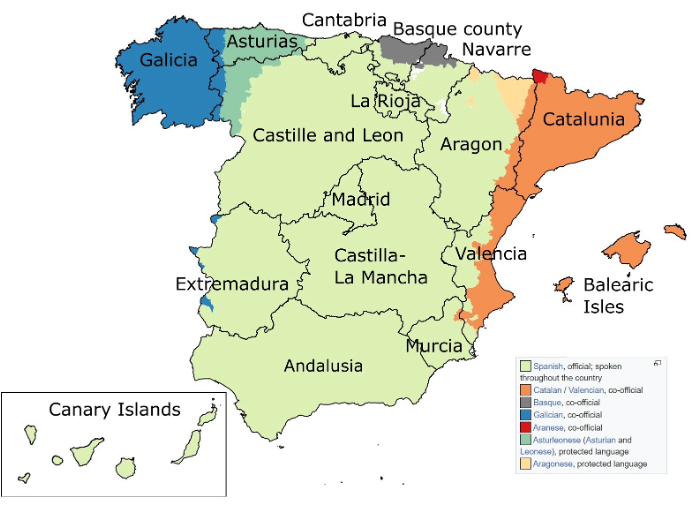Thinking of moving to Spain with your family as a digital nomad? You’re in for a treat with its vibrant culture, beautiful landscapes, and welcoming, family-oriented vibe. We’ve gathered some handy tips from a recent Move to Spain Guide webinar, along with insights from fellow nomads, to help you settle into schools, find a home, and embrace Spanish life. Here’s a friendly rundown to make your move smooth and enjoyable!
Finding the Right School for Your Kids
Sorting out schools is a big step when moving with kids, and Spain offers three main options: public schools (colegios or institutos), semi-private concertados, and private or international schools. Here’s what you need to know to get it right.
Public Schools: Affordable and Immersive
- Why They’re Great: They’re free, perfect for younger kids (up to age 9 or 10, depending on how outgoing they are), and brilliant for picking up Spanish quickly while joining the local community. Parent WhatsApp groups are fantastic for arranging playdates and birthday parties, helping you feel connected.
- The Challenges: Older kids (9+) might find the language barrier and Spain’s school system tough. It leans heavily on books, with frequent mini-tests (controles), and teachers’ opinions partly influence grades, which can feel different if you’re used to another system.
- Application Tips: You’ll usually need a padrón certificate (proof of local residence) to apply, and the main application period is March. Miss it, and you might have to wait until September when schools check for spare places, which can be nerve-wracking as your top-choice school isn’t guaranteed. Every child gets a place somewhere, though.

Louise Carr
" My son started at an international school after missing the March deadline, but he didn’t learn much Spanish. We switched him to a public school at age 10. It was hard at first—he struggled to fit in socially—but by the second year, he was fluent in Spanish and now has lifelong friends in Málaga. COVID caused some disruptions, but the experience built his confidence and bilingual skills."
International Schools: Smooth Sailing for Older Kids
- Why They’re Great: Perfect for kids 9+ who need a curriculum like British A-levels, especially if they’re aiming for university back home.
- The Downside: They’re pricey (around €12,000 a year per child, though you might get a small sibling discount). Also, your kids might not learn Spanish as quickly since many schools focus on teaching local kids English and discourage Spanish in class.
- Pro Tip: Visit the schools in person to get a feel for them - usually they'll be happy to give you a tour. Local Facebook groups are also a treasure trove for parent reviews.
Watch Out for Regional Languages
In places like Catalonia (Catalan), Valencia (Valenciano), Basque Country (Basque), or Galicia (Galician), public schools teach in both Spanish and the local language. It’s a lot for kids to take on, and many families don’t realise this until they arrive.

Our Two Cents
Go for public schools if your kids are young—they’ll soak up Spanish and make local pals fast. For older kids (9+), international schools make the transition easier, especially if they’re college-bound abroad. Either way, get your kids into local sports clubs like football or judo through the town hall. It’s a fun way to boost their Spanish and score some friends.
Finding a Place to Call Home
Finding the right spot to live in Spain can be a bit of a puzzle, but a little planning goes a long way. Here’s how to nail it:- Rent First, Buy Later: Hold off on buying and rent for 6–12 months to test out the area. Tourist spots are lively in July and August—think traffic jams and no parking—but super quiet in winter. Some places practically shut down off-season, which can feel lonely if you love a lively scene.
- Skip Peak Season Chaos: Summer rentals are tough—prices soar.
- Watch Out For Scams: Work with a relocation agent or check properties yourself to stay safe. Get an expert to make sure the landlord actually owns the place.
Our Facebook group is full of gems like this:
Steer Clear of Communal Pools. Pick the house furthest from the pool—kids shouting until 10 p.m. in summer is no joke! And don’t live next to a golf course unless you love lawnmowers waking you up at 5 a.m.
Lauren Keys ● via Facebook Group
Getting Into the Spanish Groove
Settling into Spanish life is all about diving into the culture, and these tips from the community will help your family feel at home:- Start Spanish ASAP: Jump on apps like Superfluent (for Castellano Spanish) or Duolingo (Mexican Spanish) to get a handle on basics like verbs. It’ll make daily life so much easier.
- Grab a Translator: Most public staff—like doctors or school admins—aren’t big on English. In the Facebook group, Kevin Kramb suggested finding translators through expat groups for important stuff like medical visits or school meetings.
- Join the Local Scene: Public schools and sports clubs are your ticket to connecting with locals. Those WhatsApp parent groups are like social glue—think invites to birthdays and playdates that make you feel part of the community.

0 comments